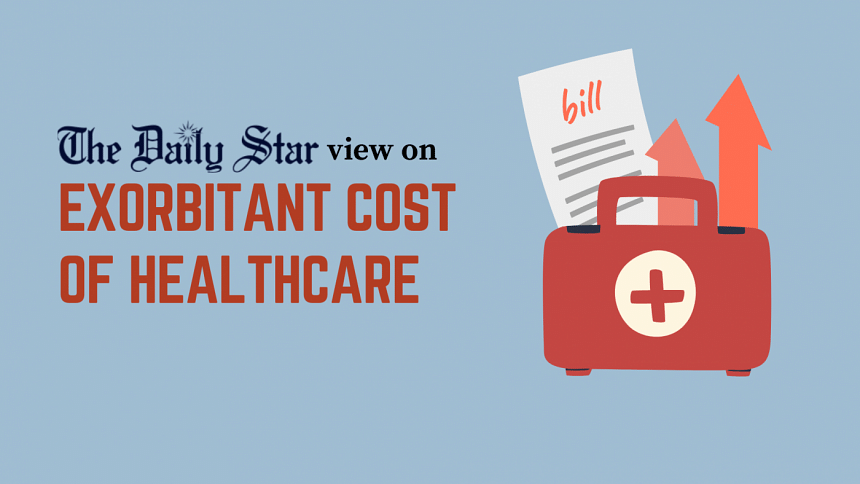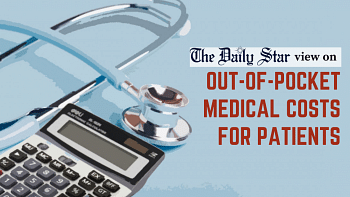Healthcare costs mustn’t make people destitute

A research finding has confirmed our fear that many people are facing poverty because of high healthcare costs in Bangladesh. A study by the Bangladesh Institute of Development Studies (BIDS), according to this daily, showed that approximately 6.13 million people were pushed below the national poverty line in 2022 because of out-of-pocket health expenditures.
The findings also revealed that more than half the population faces financial difficulties while seeking medical services in hospitals and that a large portion of the healthcare cost is spent on medicines. This is no surprise since many people in Bangladesh visit a pharmacy for basic ailments and buy medicine based on the shopkeepers' recommendations instead of consulting physicians, who are often not available at primary healthcare centres in unions and upazilas. Even when doctors are available, the poor quality of services at health facilities and the high cost of private ones often discourage people from seeking professional help. There is also a tendency among health professionals to overprescribe drugs and write brand names of medicine in prescriptions as a favour to pharmaceutical representatives who shower doctors with incentives.
The most disheartening part is that while out-of-pocket health expenditure continues to rise for the public (from 68 percent in 2020 to 73 percent in 2021), a portion of the health sector allocation remains underutilised. Plus, a significant portion of the allocation is spent on the salaries and wages of staff and health professionals, which often do not benefit patients directly. Although the health minister hinted at introducing a government-based health insurance system, many other ills in this sector need to be fixed to reduce people's healthcare burden. First, our focus needs to shift from curative to preventive care. Then the shortage of doctors and other health professionals must be resolved by instituting proper incentives and monitoring systems at duty stations. Policies and regulations should be introduced and implemented strictly to prevent the over-prescription of drugs, unethical practices of pharmaceutical companies, and regulate fees at private healthcare facilities. Corruption and inefficiencies in health sector procurement processes must be checked. Besides, a well-developed patient referral system will also decrease costs, stopping people from unnecessarily visiting specialists and paying higher fees. Only an overhaul of the entire sector, not just ad hoc measures, can re-establish people's trust in the health sector and reduce healthcare costs.


 For all latest news, follow The Daily Star's Google News channel.
For all latest news, follow The Daily Star's Google News channel. 




Comments